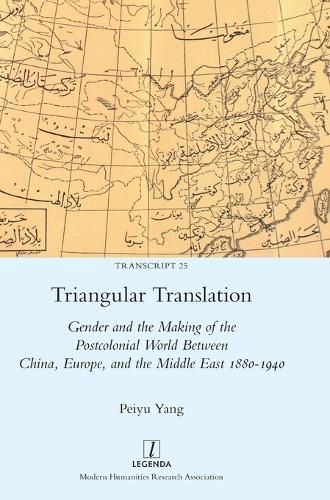Readings Newsletter
Become a Readings Member to make your shopping experience even easier.
Sign in or sign up for free!
You’re not far away from qualifying for FREE standard shipping within Australia
You’ve qualified for FREE standard shipping within Australia
The cart is loading…






This title is printed to order. This book may have been self-published. If so, we cannot guarantee the quality of the content. In the main most books will have gone through the editing process however some may not. We therefore suggest that you be aware of this before ordering this book. If in doubt check either the author or publisher’s details as we are unable to accept any returns unless they are faulty. Please contact us if you have any questions.
When did cultures in the Global South first begin to represent themselves in solidarity with one another? While empires had competed and measured themselves against each other for centuries, it was not until the late nineteenth century that cultures touched by colonial-era imperialism began to imagine another kind of worldwide network. Cultural exchange could thus become a part of a transnational movement of struggle and liberation.
This new study examines a form of triangular translation: Arabic translations of European texts studying China or translated from Chinese. In particular, Yang follows the pro-life-ration of translations springing up in Egypt in the Nahda period of cultural renaissance, 1880-1940. This was a period both of flourishing cultural production and of anti-colonial uprising. Nahdawi intellectuals increasingly turned their attention to Chinese culture and its own anti-colonial struggles, and because of this a transnational anti-colonial imaginary can be traced back to representations of China found in Nahdawi discourse during these years.
Peiyu Yang is Assistant Professor of Arabic at George Mason University.
$9.00 standard shipping within Australia
FREE standard shipping within Australia for orders over $100.00
Express & International shipping calculated at checkout
This title is printed to order. This book may have been self-published. If so, we cannot guarantee the quality of the content. In the main most books will have gone through the editing process however some may not. We therefore suggest that you be aware of this before ordering this book. If in doubt check either the author or publisher’s details as we are unable to accept any returns unless they are faulty. Please contact us if you have any questions.
When did cultures in the Global South first begin to represent themselves in solidarity with one another? While empires had competed and measured themselves against each other for centuries, it was not until the late nineteenth century that cultures touched by colonial-era imperialism began to imagine another kind of worldwide network. Cultural exchange could thus become a part of a transnational movement of struggle and liberation.
This new study examines a form of triangular translation: Arabic translations of European texts studying China or translated from Chinese. In particular, Yang follows the pro-life-ration of translations springing up in Egypt in the Nahda period of cultural renaissance, 1880-1940. This was a period both of flourishing cultural production and of anti-colonial uprising. Nahdawi intellectuals increasingly turned their attention to Chinese culture and its own anti-colonial struggles, and because of this a transnational anti-colonial imaginary can be traced back to representations of China found in Nahdawi discourse during these years.
Peiyu Yang is Assistant Professor of Arabic at George Mason University.